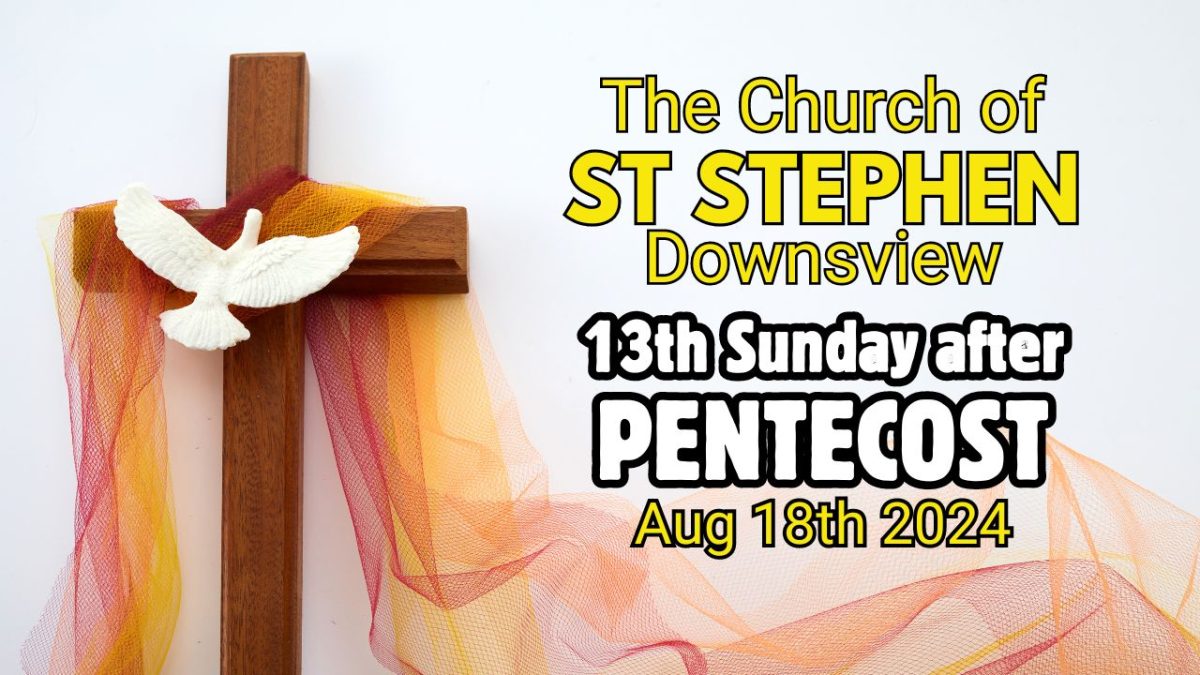 A Reflection on John 6:56
A Reflection on John 6:56
It’s always heartening to see familiar faces again, and today is no exception. Despite many of our friends traveling somewhere between Pennsylvania and Toronto after attending St. James Episcopal Church this morning, it’s a joy to share this time together with you. This morning, I want to share some profound words from John’s Gospel, specifically chapter 6, verse 56. In these words, Jesus said, “Those who eat my flesh and drink my blood, abide in me, and I in them.”
The Identity of Jesus
The Gospel of John is unique in how it reveals Jesus’s identity through various signs and statements, attributing to Him roles that elucidate His divine nature. It includes at least seven “I am” statements where Jesus describes Himself in different metaphors to highlight His identity:
– I am the light of the world.
– I am the door or gate to the sheep.
– I am the good shepherd.
– I am the resurrection and the life.
– I am the vine, you are the branches.
These statements provide us with multi-faceted perspectives on Jesus’s divine identity, akin to viewing different sides of a precious jewel. The statement that resonates with me today is Jesus’s declaration: “I am the bread of life. I am the living bread which came down from heaven.”
The Meaning of “The Bread of Life”
Jesus’s statement, “I am the living bread which came down from heaven,” invites us to delve deeper into its meaning. He says, “Whoever eats of this bread will live forever. And the bread that I will give for the life of the world is my flesh.” This statement is startling and immediately raises questions: Is Jesus urging us to literally eat His flesh and drink His blood? Historically, this led to accusations of cannibalism against early Christians, as misunderstood by second-century critics of the faith.
The Jews of Jesus’s time were equally perplexed, asking, “How can this man give us his flesh to eat?” Pressing further, Jesus insisted, “Unless you eat the flesh of the Son of Man and drink His blood, you have no life in you.” This provokes a deeper contemplation on taking Jesus’s life into ourselves, so His life becomes our own, reinforcing that we live through His life.
The Physical and Spiritual Nourishment
On a spiritual level, Jesus’s words might seem metaphorical, but there’s an unmistakable physical and tangible aspect in John’s gospel. Jesus’s proposition is balanced between the physical act of the Eucharist and the spiritual reception of His life. Bishop N.T. Wright comments that by Jesus’s sacrifice, symbolized through Good Friday, His followers can truly partake in His life. This is not merely symbolic; it’s an invitation to receive the manifold benefits of His saving death, both spiritual and tangible.
The Desire for Christ
To receive these benefits, there must first be desire. Think about a moment in a store; our children always want to buy everything they see. This raw desire must be trained and focused. Similarly, to receive Christ’s benefits, we must deeply desire and seek them with our hearts. Solomon’s story in the Book of Kings illustrates this perfectly. When God asked Solomon what he desired most, he chose wisdom to govern God’s people over long life or riches. This choice demonstrated Solomon’s higher desire—to walk in God’s wisdom.
Walking in Wisdom
In Paul’s letter to the Ephesians, walking in wisdom is equated with being filled with the Spirit. Contrary to some dramatic portrayals, being filled with the Spirit means living wisely every day, modeling our lives after Jesus Christ. This sober, wise living is necessary as evil lurks around us, and our nourishment comes from above—the bread of life.
The Eucharist as our Nourishment
Jesus offers a profound promise: “Those who eat my flesh and drink my blood have eternal life, and I will raise them up on the last day.” The Eucharist, or Holy Communion, is central to this sustenance. It is not a magical rite, but a profound means by which Jesus continues to give Himself to us. During the pandemic, many felt a profound absence because we could not gather and partake in the Eucharist. This highlights the depth of our need for this divine nourishment.
Closing Prayer
So, I pray that God grants us a continual desire—a deep hunger and thirst for His life within ours. May we all be filled with the living bread that came down from heaven, for whoever eats this bread will live forever. This is not just good news; it is the ultimate gift of life from Jesus Christ.
**Let us pray.**
Living God, you are the giver of wisdom and true discernment, guiding those who seek your ways to choose the good. Mercifully grant, Lord, that your people, feasting on the true bread of heaven, may have eternal life in Jesus Christ our Lord. Amen.
